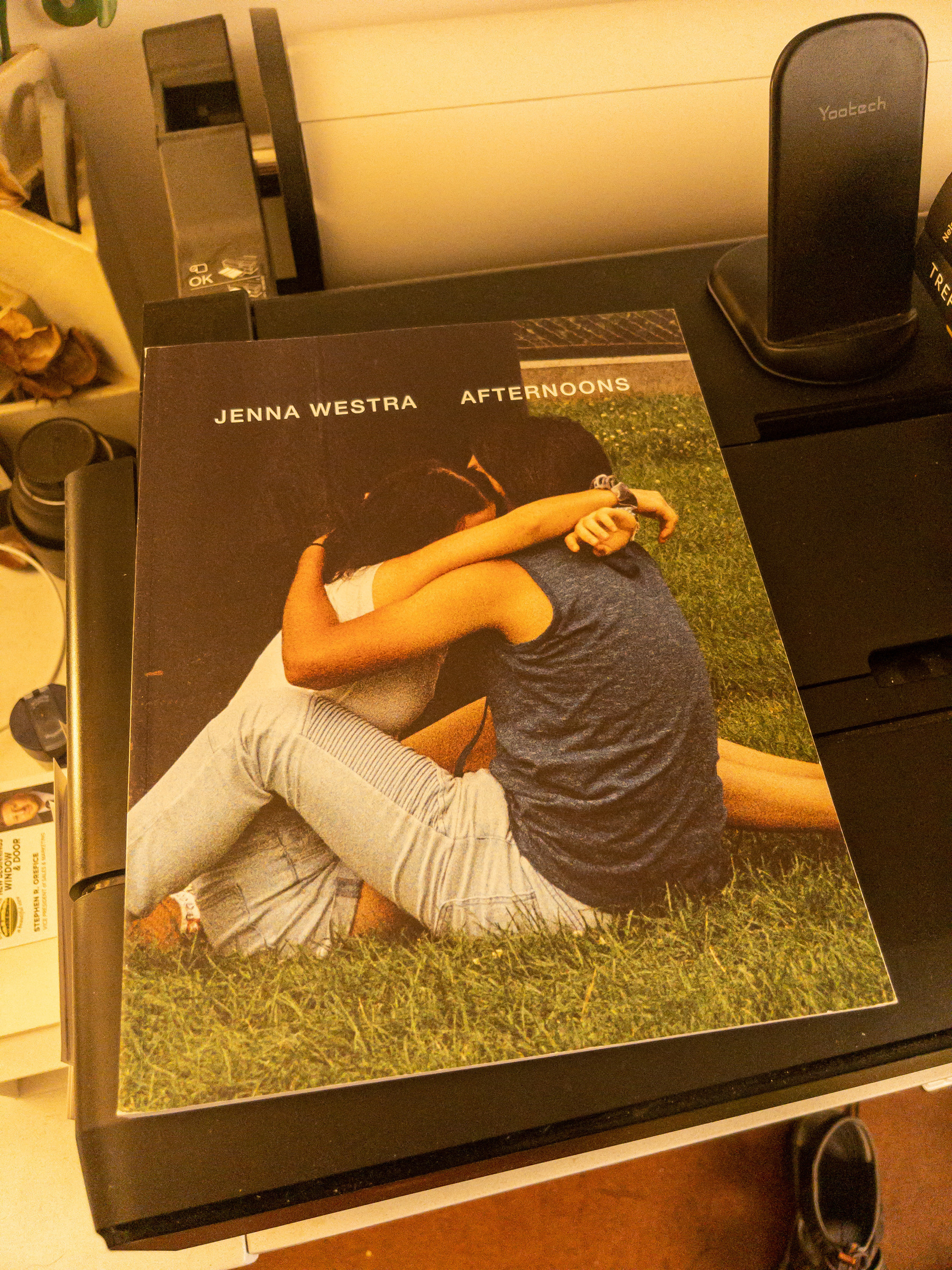03 Afternoons, Jenna Westra
… i ordered this book prior to leaving on vacation, forgot that i had, was pleasantly surprised to see it in the mail pile when i returned…
… for some time now i have been interested in the subject of women in photography, as subject/object, as photographer, as critic… i became especially interested in the “male gaze” vs the “female gaze,” as i was noticing increasing numbers of women photographers photographing other women nude… i often found the nude images made by women as “male gaze” provocative as those made by men, and wondered how that squared with the feminist idea that it is not helpful that women are continually objectified as sexual objects, not to be taken seriously as intelligent accomplished beings in their own right…
… i ordered this book because it is entirely about the female body, singularly or with other female bodies, with some full or partial nudity, but as often dressed and posed in ways that allow an appreciation of youthful feminine form without being open to an overly sexual read…
… from the opening essay by Orit Gat…
Many of the photographs feature degrees of nudity. Once this book, these photographs, are out in the world, the tender consciousness of being seen between the models and the artist or the cameral shifts. Whatever eyes rest on them, though, will recognize different things in their freedom. It’s hard, maybe impossible, to talk about a female gaze without it reading like a translation of the terminology of the male gaze. The comfort nude women feel around one another will read as familiar to many, and like a secret society to others. The photos do not explore the difference per se, but they also do not generate tension around the history of nude representation. Instead, there is tenderness.1
… it’s a deep subject that has brought lots of feminist literature into my library, Simone de Beauvoir’s Second Sex, for example…
… the biggest thing i have learned is that consent, then intent, matter… the models should always have agency in both agreeing to be photographed, how they are photographed and how the photographs are to be used after being made… intent also matters… and even when intent serves a good purpose, is not objectification of subject, the image can always be appropriated as such when it engages the male gaze, which often is the case…
-
Gat, Orit. Forward to Afternoons, Westra, Jenna. Published by Hassla, 2020. ↩︎
